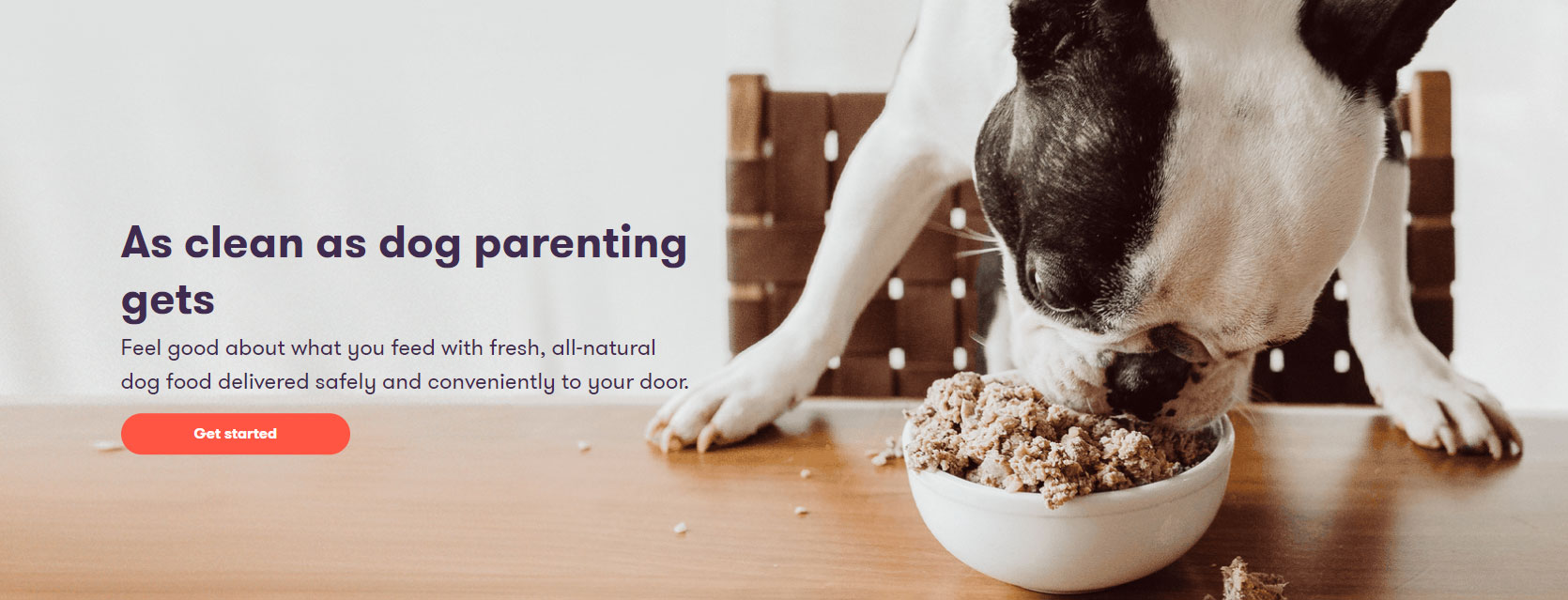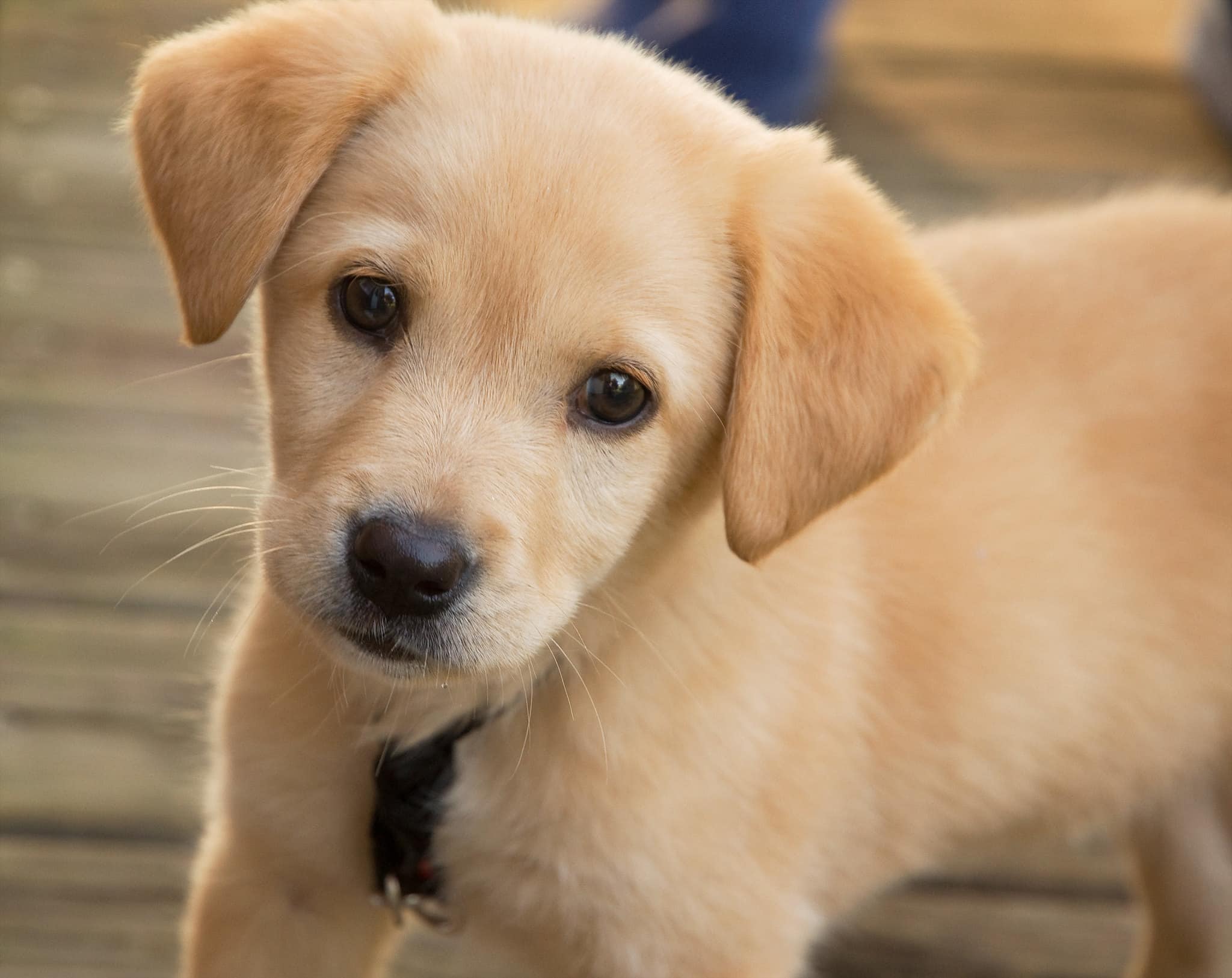Puppy weaning
Weaning is an important stage in the puppy's life, which will not only determine his future physical condition, but also play a considerable role in his adult behavior.
The importance of weaning in the puppy's life concerns not only nutrition and health issues, but also ethics, well-being and the future relationship between the owner and his companion.
To help you take care of your future companion and make sure that he becomes a dog that's at ease in his legs and in his head, here's everything you need to know about weaning.
What is puppy weaning?
Weaning is the process in which the puppy stops feeding on the milk produced by its mother and starts feeding on solid food.
Also, weaning usually depends on the growth and morphology of the animal, as puppies can only swallow solid food when they have enough teeth and their digestive system becomes capable of digesting new nutrients.
This simplistic definition tends to leave out the problems related to socialization and the development of the animal's behavior, which is largely conditioned by the way in which weaning takes place.
The impact of weaning goes far beyond a simple change of diet, encompassing an extremely pronounced behavioral dimension that must be taken into account to allow the animal to become a balanced individual with a clear head.
The importance of puppy weaning
Weaning the puppy has impacts on different levels of his physical and psychological health. In fact, we tend to distinguish two closely related processes that should be considered separately: food weaning and weaning of the mother-puppy relationship.
In fact, food weaning can be completed much earlier than the weaning of the bitch-puppy relationship, which leads many breeders or puppy owners to separate young animals from their mothers early.
This may be acceptable from a nutritional point of view, since the puppy no longer needs its mother's milk, but it can have dramatic consequences on its well-being and future behavior.
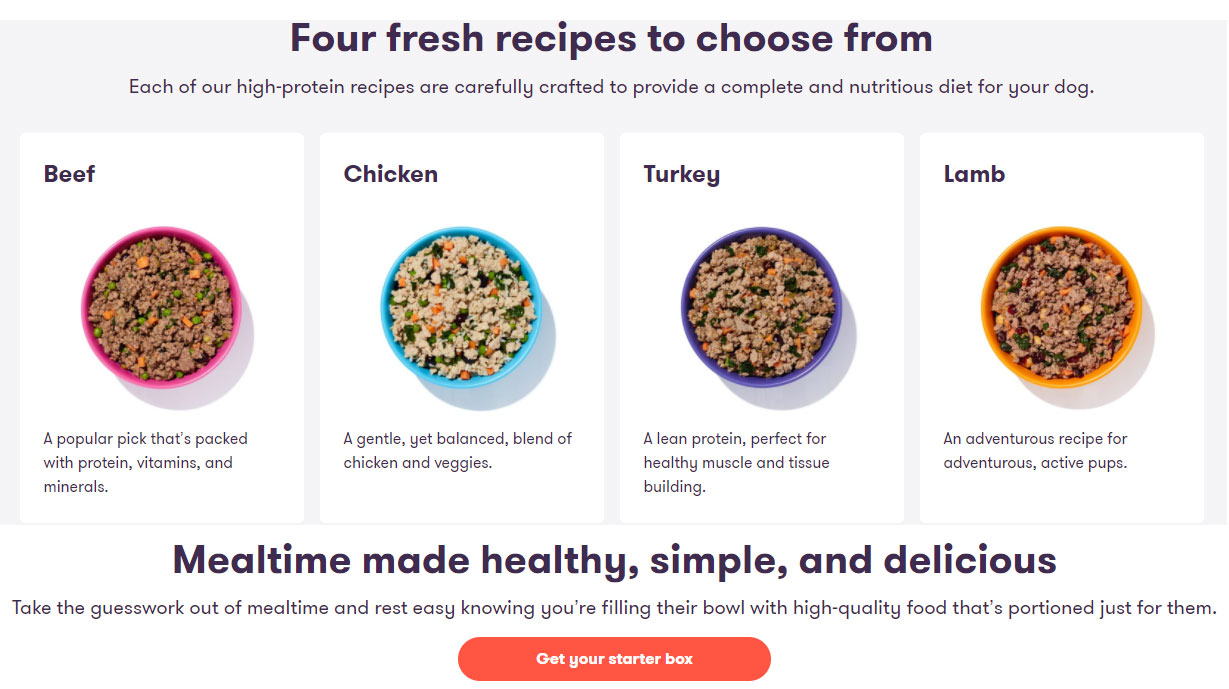
The impact of weaning on the puppy's diet and physical health
When the puppy is born, he is breastfed by his mother during the first weeks of his life, a process that allows him to get the calories he needs to feed and grow, but also the antibodies that allow him to be protected against infectious diseases.
Indeed, during gestation, the placenta of the dog does not allow the passage of all the antibodies as it is the case in other species of animals.
In fact, the puppy's immunity depends on its ingestion of colostrum, a substance secreted by the bitch and rich in immunoglobulin (circulating antibodies) that transmits its own immunity to its young.
The puppy begins to ingest colostrum within hours of birth, when her digestive system contains less active enzymes that do not destroy the immunoglobulin.
The antibodies thus enter the animal's bloodstream, providing the protection it needs to fight pathogens.
In addition to its protective function against pathogens, colostrum is a high-energy substance that provides more calories than breast milk.
In fact, it is an extremely important substance for young animals, which do not yet have fat reserves to draw on as they grow.
Colostrum also provides many minerals, including calcium and phosphorus, which the puppy needs for proper development.
Finally, colostrum allows the puppy's digestive system to develop properly and to produce the enzymes needed to digest food.
After a few days, the colostrum is replaced by mother's milk, which in turn provides the puppy with the essential nutrients for his development, i.e. calcium, phosphorus, lipids, proteins and vitamins.
The bitch produces the most important quantities of milk between the 3rd and 5th week of lactation, then the quantity produced decreases until the 7th week, to push the puppies to look for other sources of food.
From a strictly dietary point of view, puppies can be weaned from the 6th or 7th week of life, when they start to be interested in more solid foods and gradually become able to digest them.
In the past, this was the only indication used by the owners to decide to separate the puppies from their mother, but nowadays we know that it is necessary to wait until the animal is older, so that it is weaned from a "relational" point of view with its mother and it is now forbidden to sell a puppy of less than 8 weeks.
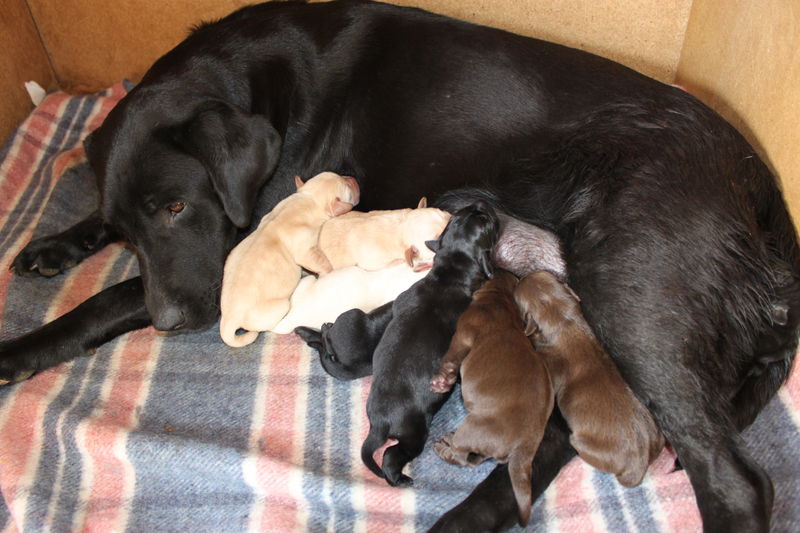
The impact of puppy weaning on his behavior and mental health
Puppy weaning plays a crucial role in the development of his future behavior, an aspect that is important to take into account when we know that the SPA counts 60 animals abandoned for behavioral reasons out of 100.
Moreover, half of the euthanasias are also related to undesirable behaviors, a dramatic phenomenon, which results from a gap between the fantasy of the perfect dog and the reality.
Our four-legged companions are indeed more numerous than we imagine, presenting deviant behaviors, sometimes not very noticeable (overexcitement, excessive barking, eating disorders, etc.), and sometimes very pronounced (uncleanliness, aggressiveness, destructive behavior, etc.).
It is important to note that congenital or pathological psychological disorders of the dog that can cause undesirable behaviors are extremely rare.
The vast majority of behavioral problems are the result of poor weaning of the puppy, poor socialization and/or poor training, often in spite of the efforts of the owners who make many mistakes out of ignorance, thinking they are doing the right thing.
Moreover, these behavioral disorders, which develop insidiously, are generally diagnosed late in the puppy and persist once the animal has become an adult, permanently altering its well-being and its relationship with humans.
The importance of the puppy's weaning period should therefore not be overlooked in the development of behavioral disorders, since this stage of its life greatly conditions the way it will perceive and interact with its environment once it is an adult.
When the puppy is born, the attachment between the bitch and her puppies is immediate and lasts for about 2 months, during which time the bitch will watch over her offspring before slowly encouraging them to become independent.
During the time that the mother raises her puppies, the puppy learns how to behave by imitating her mother, both in learning to eat solid food and in discovering how to communicate with her peers and interact with the rest of the world.
Puppies have, in fact, a great capacity of learning by imitation, that's why we tend to say that they take the character of their mother, whom they frequent more than any other animal during their development.
In reality, it's not so much a question of character or personality, but more of behavior: a bitch who tends to bark and nip, for example, is likely to pass these behaviors on to her puppies.
Good behaviors are also transmitted, and a bitch who is sociable, friendly and in her right mind is more likely to transmit good habits to her puppies.
It is during their 3rd to 5th week of life that the puppies will start to discover their environment.
Attracted by novelty, they will easily bond with all the individuals they meet during this period, whether they are humans, cats, rodents... or any other living being.
For this period of exploration to be normal, the puppy must feel safe and secure, so that all his experiences leave him with a positive feeling, avoiding making him a fearful, distrustful and uneasy animal.
The mother's role is then crucial, as she acts as a "guide", but also as a shield, accompanying her puppies during their exploration phase so that it takes place serenely.
It is also during this period that the young puppy will learn "self-control", i.e. the ability to develop good behavioral reflexes according to the stimuli received.
He will learn to be attentive in situations that require it, a behavior that will greatly condition the success of his education.
He will also discover how to satisfy his different needs, especially social needs, learning to communicate and interact with his environment in order to learn how to solicit other animals and humans "politely" in order to obtain the desired result.
Note that dogs that have not acquired this type of self-control behavior sometimes become very withdrawn or, conversely, very demonstrative, because they do not know how to obtain the social interactions they so badly need, and then develop great distress that can manifest itself in behavioral disorders.
Finally, the puppy will also learn to calm down from his mother, who generally shows herself to be very intolerant when her puppies are constantly harassing her, without knowing how to stop.
An essential aspect of self-control, the return to calm is a behavior that greatly conditions the future relationship that the owner will have with his animal.
Many owners complain about having a "hyperactive" dog, who jumps at the slightest movement, constantly solicits them, "overflows with energy" or does not stop playing once the first ball is thrown.
More than a real hyperactivity disorder, dogs that present this type of behavior are often animals that have not been put in their place by their mother during their exploration period, and have not developed the reflex of returning to calm once their needs have been met.
Please note that you must make sure that your dog's needs are met before assuming that he is unable to return to calmness because of poor weaning or training.
A dog that is crying out for play, attention or walks may also be lacking in athletic or intellectual activity, in which case it cannot settle down because its needs are not being met.
At what age should wean a puppy?
Puppy weaning can start as early as five weeks of age, but it's best not to force things and to let the puppies suckle their mother while tasting new wet foods little by little, then dry foods when their dentition allows it.
Generally, the bitch will produce less milk from the fifth week onwards, and then start to push her puppies out around the seventh or eighth week.
In reality, and in the eyes of the law, it is possible to separate the puppy from her mother as early as eight weeks of age, but the tendency now is to lengthen the weaning period to allow the puppies to develop a more balanced behavior.
Indeed, when the bitch starts to push her puppies away during feedings, it does not mean that she is done with their education, quite the contrary.
The bitch will gradually begin to set new limits for her puppies during play and grooming rituals, becoming more and more strict in the event of excesses or too vigorous requests, which will fully participate in teaching them self-control reflexes.
She will then start to establish new rules for bedtime, no longer allowing her puppies to sleep next to her.
Then, when the puppies are between 4 and 6 months old, she will no longer allow any interaction that doesn't respect the "codes" of dogs.
So, it is not necessary to rush a young puppy as soon as he is 8 weeks old to take him away from his mother, and it is quite possible to wait until he is 3 or even 4 months old, in which case he will be more balanced, and no less attached to his masters.
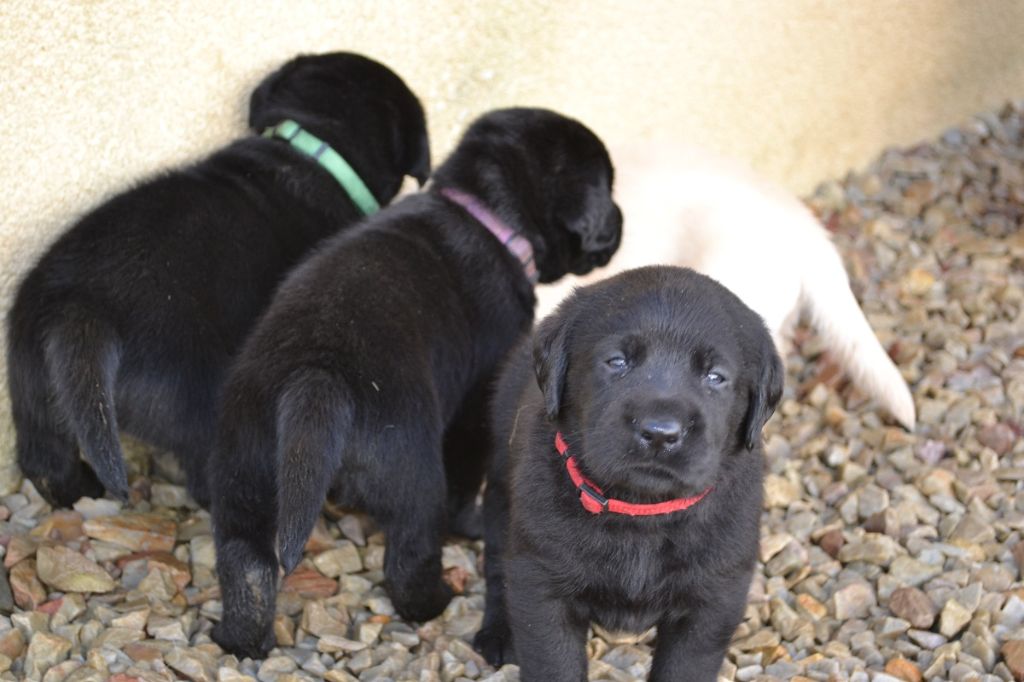
How to wean a puppy?
As far as food weaning is concerned, it's best to let things happen naturally. The puppy will, in fact, start to imitate his mother by taking an interest in her bowl as soon as his mouth is sufficiently developed to allow him to chew solid food.
Regarding the weaning of the mother-puppy relationship, it is important to wait until the animal is at least 8 weeks old to separate it from its mother, or even more.
The puppy is considered ready to move in with his new owners when he is able to explore his environment relatively independently, and willingly moves away from his mother to interact with other living things.
When the puppy is separated from its mother and arrives at its new owner's home, it will naturally seek to recreate an attachment with the humans who adopted it.
Contrary to certain widespread ideas, stemming from obsolete educational methods, the puppy should not be pushed away in this context, hoping that he will be more independent, or that this will establish some kind of domination relationship useful for his education.
Such methods are much more likely to create a feeling of distress and insecurity in the animal, and to cause lasting behavioral problems.
Instead, you should strengthen the bond with your puppy as soon as he arrives home, and then gradually distance him a few weeks later, just like his mother would.
If your puppy needs to be reassured, don't hesitate to comfort him, cuddle him, show him a good example, even let him sleep next to you.
Be careful not to overprotect him, especially when he meets other animals: interactions with other animals will greatly help him develop good behavior.
Also, do not prevent him from going to other dogs, even if he is sometimes scolded more or less vigorously. These interactions are essential to the development of his self-control reflexes.
The important thing is to create a reassuring environment, which will serve as a reference point for him to explore the world and meet new people in complete confidence.
Once your puppy is settled and acclimated to his new family, it's important to gently push him to detach from you so that he learns positively about solitude.
Start setting limits on his playtime and cuddling, responding to his requests only when he's "polite," and then push him away when it's time to sleep, so he learns to lie down on his own.
Be careful: strengthening the bond with your little puppy doesn't mean you shouldn't set rules!
On the contrary, it is advisable to get him to develop good habits as soon as possible using positive methods (rewarding good behavior), and not to put him in a situation of failure, i.e. to carefully avoid provoking a behavior that you do not want to see established.
For example, praise him when he does his business outside (positive method), and take him outside often enough so that he doesn't do his business on your carpet because he couldn't hold it in between trips (avoidance of failure situations).
FAQ
Was my puppy improperly weaned?
If you adopted your puppy before he was 8 months old, it is possible that he was poorly weaned from a nutritional point of view and developed growth problems, but also an immune fragility.
In this case, it is important to contact a professional who will set up an adapted diet to avoid deficiencies and a vaccine protection to protect him against pathogens. If your puppy has behavioral problems, including difficulty interacting with other dogs and people, it's also possible that he was weaned too soon. In the latter case, a dog behaviourist will likely be of great help.
At what age can I adopt a puppy?
The law prohibits the sale and donation of puppies before they are 8 weeks old, so you can only adopt a puppy when it is 2 months old or older. To give your pet time to detach from its mother, it is possible to wait longer without affecting the way it will bond with you.
Why is it important to properly wean a puppy?
Food weaning must be done properly so that your puppy can benefit from his mother's antibodies and all the energy he needs to develop. Weaning the mother-puppy relationship is important for your pet to develop a balanced behavior and a long-lasting healthy relationship with his owner and his environment.
How can I be sure that my puppy is weaned?
To be sure to acquire a correctly weaned animal, contact a trusted breeder and avoid pet stores at all costs. The animal must also be identified by tattoo or microchip, which allows you to know its date of birth and to make sure that it is more than 8 weeks old.
Weaning the puppy is a crucial aspect of its development, which should not be left to chance to avoid any lasting behavioral problems in the future. Behavioral problems are one of the most common reasons for abandonment and euthanasia.
To avoid these dramatic situations, it is necessary to make sure that the weaning of your puppy takes place according to the rules of the art, which can involve questioning and abandoning obsolete practices.
